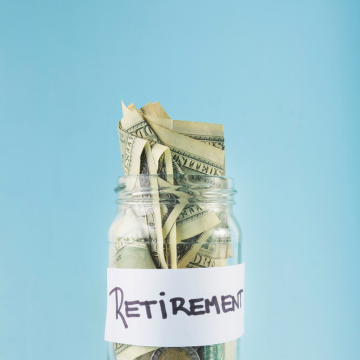Retirement Life
17 September 2025
Seniors cutting back on food and fun as living costs bite
Large numbers of older New Zealanders are being forced to make tough choices - cutting back on essentials like food and socialising as rising healthcare costs and living expenses squeeze their budgets.
And they’re nervous about the future too with nearly 70% feeling uncertain about their financial outlook. The findings come from the 2025 Quality of Life Report,* commissioned by New Zealand Seniors and conducted by research group MYMAVINS.
Not news to Age Concern NZ
Age Concern New Zealand chief executive Karen Billings-Jensen says the results reflect what it’s hearing from communities across New Zealand, and it’s concerning.
“The report clearly highlights that cost of living, long-term financial security, health concerns, housing and social connection are all critical factors influencing quality of life for older people,” she says.
“It’s concerning that some older people were managing rising healthcare costs by cutting back on social activities or, more worryingly, cutting back on food and grocery expenditure.”
The Kiwi can-do attitude prevails
Kiwi seniors are still resilient, however, with an average life satisfaction score of 6.8 out of 10. But that does mean 26% are experiencing a poor quality of life (a rating less than 6), while 38% say their quality of life has gone down over the past two years.
The survey of 500 Kiwis aged 50+ found that three in four are feeling the pinch from rising living costs, making it the top issue affecting their overall quality of life. As a result, many are scaling back on:
- Groceries (52%)
- Travel (49%)
- Transport (40%)
- Enjoyed activities (34%)
- Socialising (30%)
Calculate what you could draw in retirement.

Money and health dominate concerns
Financial anxiety is widespread, with 70% feeling unsure about their financial future, rising to 79% among Gen Xers. Nearly 60% of those already retired worry their savings won’t last, pushing the average expected retirement age up from 65 a decade ago to nearly 70 now.
Healthcare costs are also a major stressor, with over half citing them as a serious financial concern. Alarmingly, 27% reported a decline in mental well-being over the past two years – something often worsened by money worries.
Access to healthcare is also a problem: nearly half (45%) face long waits for specialist or hospital care (averaging 108 days), and more than half are considering or have delayed medical care due to cost.
Common unrealistic retirement assumptions

The report also reveals that:
-
69% want to receive aged care at home, but half say they’d struggle financially if they needed it immediately.
-
Loneliness is rising, with nearly one in two (45%) feeling more isolated than two years ago.
-
17% often go a full week without meaningful social interaction.
The report highlights three common retirement assumptions that many retirees have found unrealistic: that healthcare and aged care costs would remain manageable; that retirement would be stress-free; and that government support would be enough to live on. In reality, 43%, 42%, and 39% of respondents respectively challenged these assumptions.
* Due to the small sample size, this survey, while certainly useful, should not be considered broadly representative of all New Zealanders aged 50 or older
Invest with Lifetime for a retirement income managed for living.
